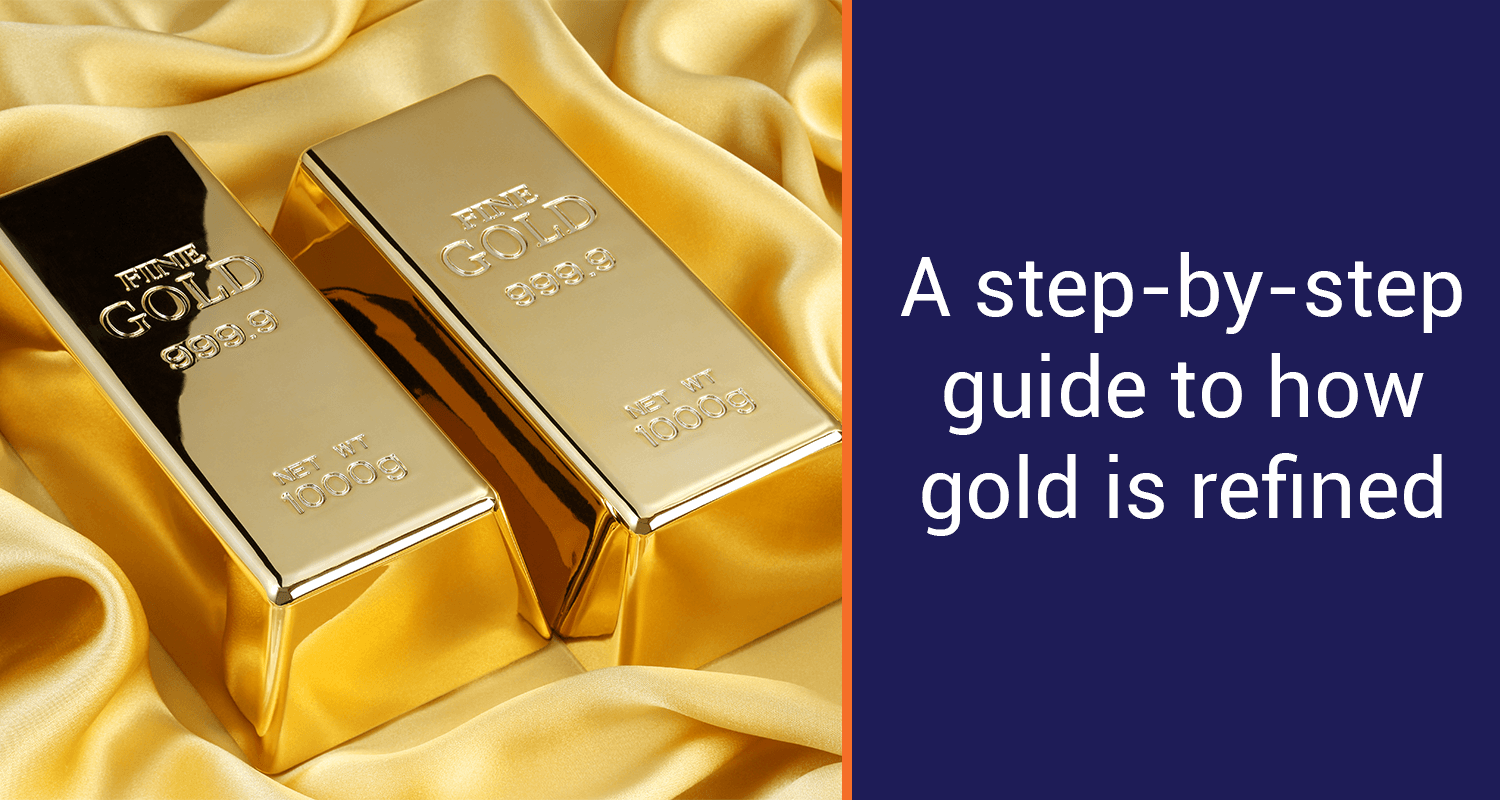How to Invest in Gold Online in India 2025

Investment is essential to build wealth and secure the future. Today there are numerous investment options like stocks, mutual funds, bonds, exchange traded funds (ETF), and many more to choose from. Since each type of investment involves some risk-reward ratio, one must evaluate the risk profile and then choose the right investment option.
One way to reduce the risk quotient is to plan investments across various financial instruments and categories. Balancing a diversified portfolio may be hard, but a safe haven investment to mitigate the risk.
Gold is a highly liquid asset that has the potential to reduce the investor credit risk. In India gold is predominantly used to make jewellery, given its inherent cultural significance. Also, as an investment gold can help in portfolio diversification due to its low correlation, low volatility, and utility value.
Gold stands out among the array of investment possibilities as a dazzling addition that offers stability and appeal. Not only is it an investment, but it's also a strategic move in the grand scheme of financial planning, a nod to tradition, and a hedge against uncertainty.
As seasoned experts suggest, a judicious approach recommends limiting gold investments to approximately 10-15% of one's portfolio. This percentage may fluctuate based on economic tides or governmental debt dynamics. Yet, amidst the numerical deliberations, the guiding principle remains—align your investment strategy with your overarching financial goals.
Embarking on the golden journey of investment is not merely a financial endeavour— it's a strategic move. In a country like India, where the allure of gold runs deep in the cultural fabric, understanding the intricacies of gold as an investment becomes more than a choice—it becomes a prudent decision that harmonizes tradition with modern financial wisdom.
Why should you prefer to invest in Gold?
Here are a few reasons as to why investing in gold could be one of your wise investment decisions:
1.Gold as an investment has maintained its value through centuries, acting as a reliable store of wealth even in turbulent times.
2.It adds a layer of diversification to your investment portfolio, offering a hedge against market volatility and economic uncertainties.
3.Gold often performs well during inflation
4.It tends to shine in times of crisis, serving as a safe haven asset when other investments may falter.
5.Gold as an investment is universally recognized and accepted, providing liquidity and ease of conversion across international markets.
6.Physical gold provides a tangible, real asset that you can possess, offering a sense of security beyond paper or digital investments.
7.Acts as insurance for your overall portfolio, balancing the risks associated with other asset classes.
8.Especially relevant in countries like India, gold holds cultural significance, making it a cherished asset with emotional value.
9.The limited and slow growth in gold supply contributes to its scarcity, potentially driving its value over the long term.
10.Many central banks hold gold reserves as a strategic asset, reflecting its perceived importance in times of economic uncertainty.
11.The fluctuation in gold prices can present opportunities for capital gains, especially during market cycles.
Remember, while gold brings a unique set of benefits, it's crucial to align your investment choices with your financial goals and risk tolerance.
Get Gold Loan at the comfort of your home
Apply NowLet’s understand the finer points of investing in gold
|
Aspect |
Physical Gold |
Gold ETFs |
Gold Funds |
|
Form of Investment |
Tangible gold in the form of coins, bars, or jewellery. |
Paper format representing ownership of gold. |
Investment in shares of companies involved in gold mining or ETFs/Mutual funds focused on gold. |
|
Ownership. |
Direct ownership of physical metal. |
Ownership in the form of units in a Demat account |
Ownership in the form of mutual fund units or stocks. |
|
Storage |
Requires secure storage, either personally or through a third-party depository. |
No physical storage is required; gold is held electronically. |
No physical storage is needed; holdings are managed by the fund. |
|
Liquidity |
It may involve selling physical gold, which can take time. |
Easily traded on stock exchanges during market hours. |
Redemption may take some time, depending on the fund's terms. |
|
Costs and Premiums |
Incurs costs such as insurance, storage fees, and manufacturing markups. |
Generally lower costs; investors may pay a small expense ratio. |
May have entry/exit loads and expense ratios; costs are managed by the fund |
|
Flexibility |
Less liquid and may involve additional costs for converting to cash. |
High liquidity; can be bought or sold during market hours. |
Liquidity varies; subject to market conditions and fund terms. |
|
Risk Exposure |
Limited to market fluctuations in gold prices |
Direct exposure to gold price movements. |
Exposure to gold prices and the performance of gold-related companies. |
|
Minimum Investment |
Depends on the quantity of physical gold purchased. |
Typically lower entry point, making it accessible for small investors. |
Minimum investment amount set by the mutual fund; varies. |
|
Tax Implications |
May attract capital gains tax upon selling physical gold. |
Tax implications similar to equity investments. |
Tax treatment similar to equity mutual funds. |
• Low Correlation:
A well-diversified portfolio is built based on assets that have low or negative correlation with each other. Gold, as a safe haven asset, is known to exhibit minimal correlation, or even negative correlation, with riskier assets like equities, stocks and bonds. Investing in gold works as a good hedge against currency volatility and inflation since rising inflation raises the value of gold.
• Low Volatility:
Equities become volatile with interest rate hikes and lower purchasing power of consumers due to the rising inflation. Contrarily, gold moves higher with inflation. So, as an asset class with lower volatility gold negates the hitch.
• Utility Value:
There is recurring demand for gold due to its inherent value.
But how can gold practically add to diversification of investment portfolios? Here's how investors can plan a gold investment in India:
• Physical Gold:
The direct way to possess gold is to purchase physical gold bars or coins of any size. The yellow metal is held by a third-party depository against storage fees. In case investors want to store it themselves, they can take physical delivery of the gold.
But holding bars and coins can have a drawback. Investors need to bear the insurance costs and also, must pay a premium over the metal spot price on gold because of manufacturing and distribution markups.
• Exchange-Traded Funds(ETFs):
This is an alternative to direct purchase of gold bullion. ETFs are the safest way to invest in gold because investors need not undertake the hassles of storing the physical gold. The purchased gold is stored in Demat (paper) format. Thus, they are cost-effective and an obvious choice for small investors.
These funds may be traded just like stocks, in any brokerage account or individual retirement account (IRA). The fund’s operator is responsible for handling the costs of gold and charging an expense ratio.
But some gold funds may not be beneficial, especially the ones for lower long-term capital-gains rates.
• Gold Mining Companies:
Some investors like to own shares of companies that mine for gold. These companies specialize in mining and refining gold. Gold mining shares can be bought by investing in the company's stocks or royalties, as well as gold mining exchange traded funds (ETFs) and mutual funds.
But the question here is how much should one invest in gold. Many experts believe that investors should limit around 10-15% of their investment to purchase gold. The number can go up in the face of a tumbling economy or with a rise in the government debt. Whatever the percentage be, while deciding how much to invest, one must never lose sight of the overall financial goals.
Conclusion
There are a few conventional and modern types of gold investments. The conventional way includes simple purchase of physical gold in the forms of jewellery, coins, bars, or artifacts. But many modern day investors prefer gold ETF and gold funds.
Unlike stocks and bonds, gold does not fetch a regular income in the form of interests and dividends. But it delivers long-term returns and also helps in improving the investment diversification portfolio.
Before deciding the right financial instrument based on personal requirement, one must have adequate knowledge of the markets and also, must be willing to and to spend enough time choosing the best investment option. When considering gold investment good or bad, it's essential to weigh its stability and liquidity. However, if you are not convinced of gold as an investment and have idle gold assets at home, you can opt for gold loan investment during any crisis.
Is the idea of a gold loan running through your mind? Herein lies another benefit of applying for loans at IIFL Finance. IIFL offers the best value for your gold. All IIFL gold loan products have short processing times followed by short-time disbursals and are thus designed to relieve you of your burden.
FAQs
Q1. How is gold a good investment?Ans. Gold can be a valuable addition to your investment portfolio for a few reasons.
- Firstly, it acts as a hedge against inflation. Unlike cash, which loses buying power over time, gold prices tend to rise with inflation, safeguarding your wealth's true value.
- Secondly, gold is seen as a safe haven during economic crises. When stocks and bonds plunge due to uncertainty, gold prices often remain stable or even increase, offering security when other markets falter.
- Finally, gold has a long history of holding its value. Throughout centuries, it has been a coveted metal, and its demand ensures it remains a reliable store of wealth for the long term.
Ans. The "best" gold investment depends on your goals. Here's a quick breakdown:
- Physical Gold: Safest option for long-term holdings, but you need secure storage (adding costs).
- Gold ETFs (Exchange Traded Funds): Represent ownership of gold without physical metal. Easier to buy/sell and store, but comes with fees.
- Sovereign Gold Bonds (SGBs): Backed by the government, offer guaranteed interest and tax benefits. Good for both safety and some return, but have lock-in periods.
- Start small: Don't jump in headfirst. Consider Sovereign Gold Bonds (SGBs) or Gold ETFs (Exchange Traded Funds).
- SGBs: Offered by the government, they provide guaranteed interest and tax benefits, but have lock-in periods.
- Gold ETFs: Represent ownership of gold without physical metal. Buy/sell through a broker like stocks, with lower risk and easier storage.
- Do your research: Understand the different options, fees involved, and how gold fits your investment goals.
Ans. Crafting a gold investment plan requires some initial legwork. First, define your goals. Are you aiming to diversify your portfolio, hedge against inflation, or seek long-term growth? Understanding your "why" will guide you towards the most suitable option. Next, delve into the different gold investment avenues - physical gold, ETFs (Exchange Traded Funds), and Sovereign Gold Bonds (SGBs). Each has its advantages and drawbacks.
Physical gold offers maximum security but comes with storage costs. ETFs provide ease of purchase and sale but involve fees. SGBs combine guaranteed interest with tax benefits but have lock-in periods. Finally, consider the associated costs like storage fees for physical gold or management fees for ETFs/SGBs.
Q5. Is gold a good investment than FD?Ans. It depends on your goals. Gold offers potential for higher returns and inflation protection, but prices can fluctuate. FDs give guaranteed, low returns but are safer and more liquid. Choose gold for long-term growth and diversification, FDs for guaranteed returns and short-term needs.
Q6. What is the return of gold in 10 years?Ans. Predicting future returns is impossible, but we can look at historical performance.
- Gold prices have seen significant increases over 10 years, but returns can fluctuate.
- Looking at historical averages, some sources report 7.5% to 10.3% returns on gold investments over 10 years.
Get Gold Loan at the comfort of your home
Apply NowDisclaimer: The information contained in this post is for general information purposes only. IIFL Finance Limited (including its associates and affiliates) ("the Company") assumes no liability or responsibility for any errors or omissions in the contents of this post and under no circumstances shall the Company be liable for any damage, loss, injury or disappointment etc. suffered by any reader. All information in this post is provided "as is", with no guarantee of completeness, accuracy, timeliness or of the results etc. obtained from the use of this information, and without warranty of any kind, express or implied, including, but not limited to warranties of performance, merchantability and fitness for a particular purpose. Given the changing nature of laws, rules and regulations, there may be delays, omissions or inaccuracies in the information contained in this post. The information on this post is provided with the understanding that the Company is not herein engaged in rendering legal, accounting, tax, or other professional advice and services. As such, it should not be used as a substitute for consultation with professional accounting, tax, legal or other competent advisers. This post may contain views and opinions which are those of the authors and do not necessarily reflect the official policy or position of any other agency or organization. This post may also contain links to external websites that are not provided or maintained by or in any way affiliated with the Company and the Company does not guarantee the accuracy, relevance, timeliness, or completeness of any information on these external websites. Any/ all (Gold/ Personal/ Business) loan product specifications and information that maybe stated in this post are subject to change from time to time, readers are advised to reach out to the Company for current specifications of the said (Gold/ Personal/ Business) loan.



